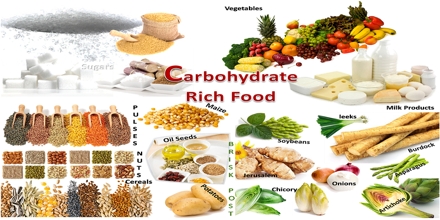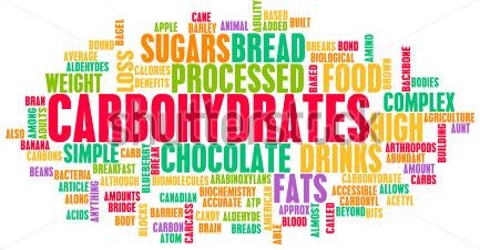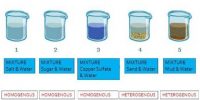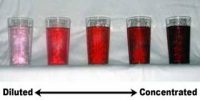Carbohydrate
The foods which mostly contain the constituent of sugar or glucose are called carbohydrates. For example: rice, wheat, flower, maize, corn, sugar, molasses etc. Plants are the only source of carbohydrates. In our daily life, we mostly eat these types of food. To test the presence of carbohydrates in food we carry out Iodine test. Iodine solution changes its colour with the presence of carbohydrates. Carbohydrates come in simple forms such as sugars and in complex forms such as starches and fiber. The body breaks down most sugars and starches into glucose, a simple sugar that the body can use to feed its cells.

Traditionally, there are three broad categories of carbohydrates:
- Sugars – These are either simply molecules of simple sugars such as glucose, fructose, or galactose or two of these molecules joined together.
- Starches – Starches (polysaccharides) are composed of long chains of glucose. They are broken down into glucose in the body, some more rapidly than others.
- Fiber – Fiber essentially means a carbohydrate such as the cellulose in plants which cannot be broken down for energy use in our bodies.
Function
The principal function of carbohydrates is to provide energy for the body, particularly the brain and the nervous system. An enzyme called amylase helps break down carbohydrates into blood sugar, which gives your body energy.















